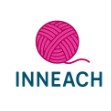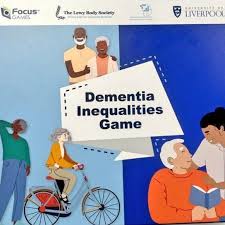-
Courses

Courses
Choosing a course is one of the most important decisions you'll ever make! View our courses and see what our students and lecturers have to say about the courses you are interested in at the links below.
-
University Life

University Life
Each year more than 4,000 choose University of Galway as their University of choice. Find out what life at University of Galway is all about here.
-
About University of Galway

About University of Galway
Since 1845, University of Galway has been sharing the highest quality teaching and research with Ireland and the world. Find out what makes our University so special – from our distinguished history to the latest news and campus developments.
-
Colleges & Schools

Colleges & Schools
University of Galway has earned international recognition as a research-led university with a commitment to top quality teaching across a range of key areas of expertise.
-
Research & Innovation

Research & Innovation
University of Galway’s vibrant research community take on some of the most pressing challenges of our times.
-
Business & Industry

Guiding Breakthrough Research at University of Galway
We explore and facilitate commercial opportunities for the research community at University of Galway, as well as facilitating industry partnership.
-
Alumni & Friends

Alumni & Friends
There are 128,000 University of Galway alumni worldwide. Stay connected to your alumni community! Join our social networks and update your details online.
-
Community Engagement

Community Engagement
At University of Galway, we believe that the best learning takes place when you apply what you learn in a real world context. That's why many of our courses include work placements or community projects.
Psychosocial Dementia Research Group
Psychosocial Dementia Research Group interacts with the Psychosocial Interventions for Dementia Research Network, which is a collaboration of academics and PhD students from the University of Galway, University College Cork, University of Limerick, University of Queensland, clinical practitioners based in HSE, members from the Alzheimer Society of Ireland, and people living with dementia and their family carers. This network aims to develop and support psychosocial dementia research, education and practice to improve outcomes for people living with dementia and their family carers. The group meets twice a year, in which members present their research, inform members about upcoming funding calls and collaborate on funding applications.
A number of academic staff from the School of Nursing and Midwifery are also members of the INTERDEM (https://interdem.org/) . It is a pan-European network of researchers who collaborate in research on and dissemination of Early, Timely and Quality Psychosocial Interventions in Dementia aimed at improving the quality of life of people with dementia and their supporters, across Europe.
Examples of the research activities and successful grant applications of the members of the Psychosocial Dementia Research Group are presented below:



INNEACH: Intergenerational Programmes to enhance social connectivity for people living with dementia (2025-2027)
The aim of this project is to develop an intergenerational programme for people living with Dementia. The programme we develop will create opportunities for different generations to form social relationships, learn with and from each other, where all feel valued and supported. At the end of this work, we will have a bespoke intergenerational programme, ready for testing in a future study.
Catherine Houghton is the principal investigator of this project. Duygu Sezgin and Siobhan Smyth are collaborators of this project.

Recommendations for the development and use of technology to support people living with dementia and their caregivers: A Delphi study (2024-2025)
This study is about and includes people living with dementia, their support people and the professional community. It aims to explore challenges in developing and using technology to support people living with dementia and their caregivers. The findings of this study will contribute to the new INTERDEM position paper on assistive technology: priorities for research and practice 2025-2032.
This study is led by Duygu Sezgin in collaboration with INTERDEM Assistive Technology Taskforce members from the Netherlands, Portugal, Ireland, and Germany. 
Adaptation of the “Dementia Inequalities Game” to the Irish Context (2024-2025)
The game was developed in 2023 by the University of Liverpool, the Lewy Body Dementia Society, and people with lived, caring, professional, and voluntary sector experiences of dementia. It raises awareness of dementia including different subtypes, inequalities, and barriers/facilitators experienced by people with dementia and carers while accessing care and support services. Since the game refers to the organisation of dementia care and statistics from the United Kingdom, adaptation of this game will enable its use in Irish care, education, and outreach activities.
This project is co-funded by the University of Galway CMNHS Age-Friendly College initiative and the NMPDU Nursing and Midwifery Service Improvement Innovation Initiatives 2024.
The adaptation of this game is led by Duygu Sezgin in collaboration with Edel Shiel (HSE), Louise Hopper (DCU), Ziyue Wang (PhD Student), Dympna Casey (IRIS profile), Clarissa Giebel (UK).
Our PhD Projects:
Animal assisted therapy for older people living with dementia in residential settings.
Student name: Dou Zhang. Supervisors: Dr Catherine Houghton and Dr Marita Hennessy
Examination of social frailty in adults with early onset dementia and interventions to improve their social health
Student name: Ziyue Wang. Supervisors: Dr Duygu Sezgin, Professor Dympna Casey and Dr Andrew Hunter
















